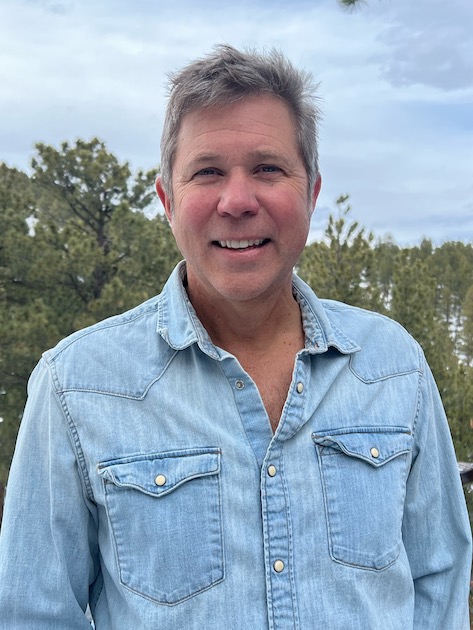True  Healing Happens Through The Power Of Relationships
Healing Happens Through The Power Of Relationships
Time and again in our lives, we all hit roadblocks that we think we’ll never overcome. Then the right people come into our picture, and suddenly our lives are infused with hope. What previously felt impossible becomes a little easier, because we have the support of people who genuinely care about us and believe in us.
As a therapist, I believe that there is no substitute for the restorative power of relationships. Just as relationships are the source of various traumas and emotional wounds, they have the ability to endow our lives with meaning, vitality, and deeper healing. My goal is to provide a relationship that does just that.
When you have a safe, nonjudgmental, and unconditionally supportive relationship, you can authentically connect with yourself and consciously explore what’s not working in your life. From this starting point, you can begin to compassionately heal old wounds and move toward a more empowered and fulfilling life.
My Life Experiences And Journey Into Therapy
I grew up in a home full of love and encouragement. My parents did the best they could and sacrificed a lot for my brother and I. When they decided to divorce and go their separate ways, they made sure to never put the two of us in the middle. They maintained their integrity and stayed committed to raising us peacefully. These experiences deeply shaped my understanding of human relationships and are part of why I specialize in couples therapy today.
As a young person, I endured a decade-long quarter-life crisis in my twenties. I found myself floundering and struggling to find my heart’s work and life’s purpose. Then, through a series of unexpected events, I ended up attending Naropa University in Boulder, Colorado. The experiential and thought-provoking nature of my studies there began to give my life meaning and direction. I decided that I wanted to become a therapist, so I earned a Master’s degree in Counseling. Thanks to my unique training at Naropa, I learned to incorporate my life experience, spirituality, and love of the outdoors into my work with clients.
My Approach To The Healing Process
In sessions with my clients, I prioritize active listening and a nonjudgmental approach. I try to hear what isn’t being said and reflect on it in a compassionate and empathic way. I help clients get in touch with their emotions and increase their self-awareness, allowing them to understand their needs, values, and aspirations on a deeper level.
I utilize a wide variety of therapeutic modalities to meet the individual needs of clients. After all, everyone is different—as Carl Jung said, “The shoe that fits one person pinches another; there is no recipe for living that suits all cases.”* My goal is to help you find a therapeutic approach that works for you. Some of the main treatment methods I utilize include:
Gestalt Therapy—An existential form of psychotherapy that emphasizes personal responsibility in the face of life’s challenges. Gestalt philosophy focuses on an individual’s experience in the present moment and the changes they can make to cope with and adapt to their situation.
Wilderness Therapy—The wilderness has long been a source of grounding, healing, and spirituality for humans. Today, many of us are separated from our natural habitat and live and work in a realm dominated by concrete and technology. It’s no wonder so many people feel isolated, alone, and cut off from a deep sense of belonging. I utilize the wild as a therapeutic intervention and container to help individuals explore their emotions, beliefs, and experiences beyond the cultural messages and limitations of the urban world.
Rites of Passage—In traditional cultures, rites of passages are witnessed and celebrated events that mark a significant transition in a person’s developmental life. During such events, the community honors an individual’s journey beyond a threshold through rituals handed down over time. In my approach to therapy, I intertwine rites of passage work with ancient roots to offer profound, life-changing experiences that can guide, heal, and open you to positive growth—all within the context of a supportive community relationship.
PACT (Psychobiological Approach to Couples Therapy)—This approach fuses attachment theory with the latest findings in neuroscience to help couples strengthen their emotional bonds and connect with each other in a more meaningful way.
No matter which of these modalities suits your situation best, I always seek to infuse the right balance of theory, practice, and insight into sessions. Through an approach that is eclectic, trauma-focused, and rooted in the power of relationships, I’m confident that I can help you embark on this new chapter of your life with peace and assurance.
A Little Bit About Who I Am
When I’m not in sessions with my clients, you can often find me exploring the great outdoors. As you might’ve guessed, nature is deeply important to me—I believe that our disconnection from nature is one of the major problems facing our society today. In my spare time, I like to hike, bike, ski, and enjoy all the other outdoors activities that Colorado has to offer. I also like to cook, entertain my people, and spend time with animals. My family and I have always had dogs and horses in our lives.
People often describe me as laidback, easygoing, and genuine. These qualities greatly benefit my therapeutic work and allow me to connect with clients on a deeper, more meaningful level. If you want to take the next step in your journey of self-discovery, I would be honored to take it with you and serve as your guide through the ups and downs of life!
Stuart Marshall is a licensed clinical therapist who works with adults, couples, and families in Boulder, Colorado. He has a Master’s degree from Naropa University in Transpersonal Psychotherapy and has had specialized trainings in Gestalt Therapy, Wilderness Therapy, and PACT Level 2 Couples training.
*Jung, Carl. Modern Man in Search of a Soul. Harcourt Publishing, 1931.